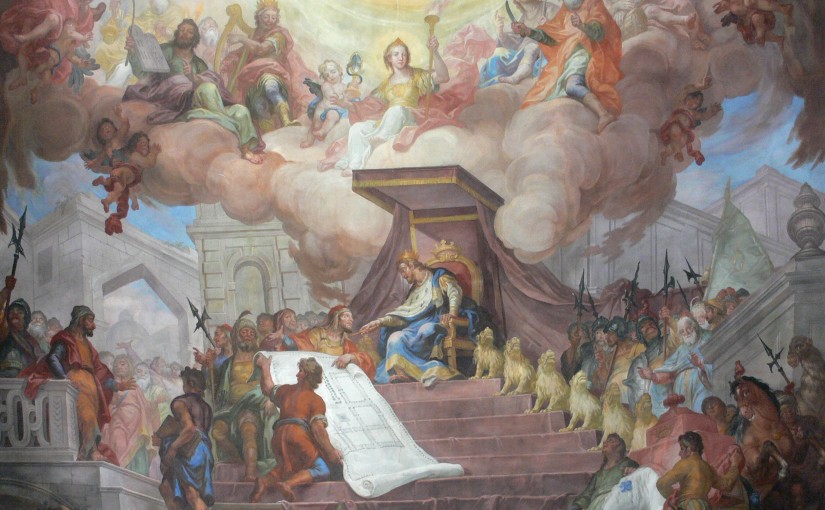اک کھیل ہے اورنگِ سلیمان مرے نزدیک
اک بات ہے اعجازِمسیحا میرے آگے
مرزا غالب –
Ik khel hai aurang-e-sulemaN mere nazdeek
ik baat hai eijaz-e-maseeha mere aage
– Mirza Ghalib
इक खेल है औरंग-ए-सुलेमान मेरे नज़दीक
इक बात है एजाज़-ए-मसीहा मेरे आगे
– मिर्ज़ा ग़ालिब
Meaning of:
aurang-e-suleman, औरंग ऐ सुलेमान, اورنگِ سُلیمان: सुलेमान की बादशाहत, Throne of Suleman
Eijaz-e-maseeha, एजाज़ ऐ मसीहा, اعجازِ مسیحا: मसीहा का चमत्कार, Miracle of the maseeha
“Wurzach Pfarrkirche Decke Westteil” by Painting: Andreas Brugger; Photo: Andreas Praefcke – Own work (own photograph). Licensed under Public Domain via Commons.
Solomon at his throne, painting by Andreas Brugger, 1777. In Islamic tradition, Solomon is venerated as a prophet and a messenger of God, as well as a divinely appointed monarch, who ruled over the Kingdom of Israel. As in Judaism, Islam recognizes Solomon as the son of King David, who is also considered a prophet and a king but contrary to Judaism, Islam completely denies the claim that Solomon had sinned or turned to idolatry.
Source: Wikipedia
The ghazal Bazeecha-e-atfal hai dunia mere aage has 14 ashars. Several of them not as popular as others. Ik khel hai aurang-e-suleman mere nazdeek is one such sher.
